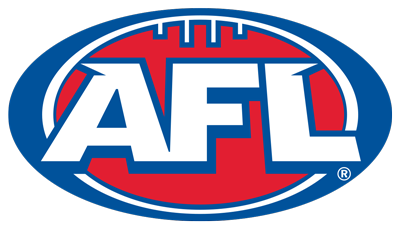Umpires' Oversight Sparks Safety Concerns
Last updated on May 9, 2025 at 11:39 am
Posted on May 9, 2025 at 12:39 pm
The recent incident during the Collingwood vs. Fremantle match has cast a spotlight on the critical issue of umpires' decision-making and its implications for player safety. Lachie Schultz's apparent injury was momentarily overlooked, leading to a delay in medical intervention, which underscores potential flaws in the existing protocols. This situation has prompted the AFL to reassess the mechanisms in place to protect athletes on the field. As debates around the adequacy of umpire training and the need for stringent oversight grow, the call for immediate action resounds louder than ever, leaving us to ponder what changes might be on the horizon.
Umpires' Decision-Making Flaws
The oversight in decision-making by umpires during the match, particularly concerning Lachie Schultz's injury, underscores significant flaws in on-field awareness. This incident highlights an essential gap in umpire training concerning injury awareness, which is crucial for ensuring player safety. The AFL's review indicated that play should have been halted when Schultz was injured, yet the umpires failed to recognize the situation promptly. This oversight not only delayed critical medical attention but also exposed the players to further risks. There is a pressing need for enhanced umpire training programs that emphasize the importance of vigilance regarding player injuries. Establishing a robust framework for recognizing and responding to such incidents is vital to maintaining the integrity and safety of the game.
Incident Details and Impact
During the match between Collingwood and Fremantle, Lachie Schultz's concussion incident underscored the real-time impact of decision-making lapses by umpires. Despite the evident distress of Schultz, who struggled to regain his footing after a tackle attempt, play continued for approximately 15 seconds. This oversight raised significant concerns regarding player welfare and injury awareness. The delayed response potentially exacerbated Schultz's condition, highlighting the critical need for immediate medical intervention in such scenarios. Coaches and medical staff emphasized the importance of prioritizing player safety, advocating for heightened vigilance by umpires. This incident demonstrated the inherent risks of insufficient injury awareness on the field, urging a reassessment of the protocols to safeguard athletes effectively during matches.
AFL's Response and Commitment
In response to the incident involving Lachie Schultz, the AFL has taken a firm stance on the necessity of enhancing safety protocols to prevent similar oversights in the future. The league has reiterated its commitment to player welfare, emphasizing that immediate medical attention is paramount. AFL regulations already dictate that play should cease when a player is injured, yet the recent oversight highlighted lapses in adherence and awareness. To this end, the AFL is reviewing its guidelines to ensure that umpires are fully equipped to prioritize player safety during matches. The league's dedication to upholding the welfare of its athletes is underscored by its proactive approach in addressing gaps in current practices, reaffirming its resolve to safeguard players on the field.
Future Protocol Improvements
A series of strategic enhancements to AFL's umpiring protocols are on the horizon, aimed at bolstering player safety and mitigating future oversights. Central to these improvements is a stronger emphasis on injury prevention, ensuring that play is halted promptly when an injury occurs. This will be facilitated through advanced communication strategies, enhancing real-time information exchange between umpires and medical staff. The league is also considering implementing technology-driven solutions to quickly alert officials of potential injuries. Enhanced training programs will equip umpires with the necessary skills to identify and respond to on-field incidents more effectively. These initiatives underscore the AFL's commitment to refining its protocols, prioritizing player welfare, and preventing similar incidents from jeopardizing athlete safety in the future.
Conclusion
The incident involving Lachie Schultz underscores critical deficiencies in umpires' decision-making regarding player injuries, revealing a gap in current protocols. The delay in addressing Schultz's condition highlights the need for immediate enhancements in training and procedures to ensure timely medical intervention. The AFL's response acknowledges these shortcomings and reflects a commitment to reinforcing safety measures. Future improvements must focus on empowering umpires with the skills and authority necessary to prioritize athlete welfare effectively during gameplay.













